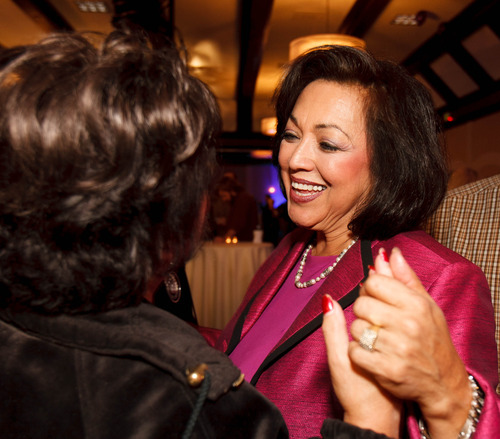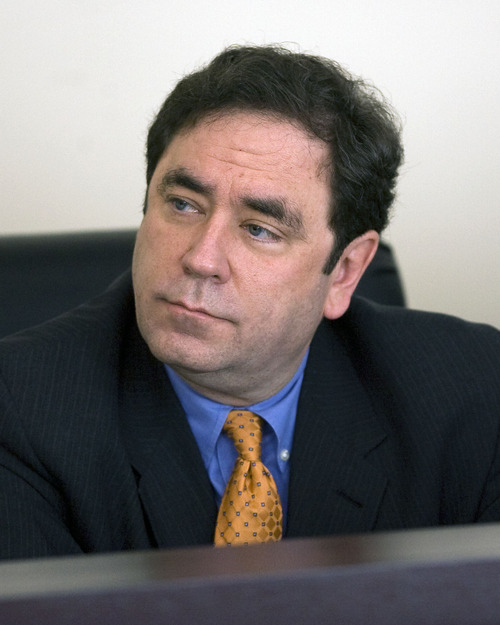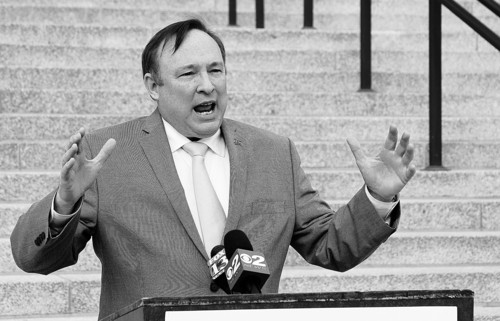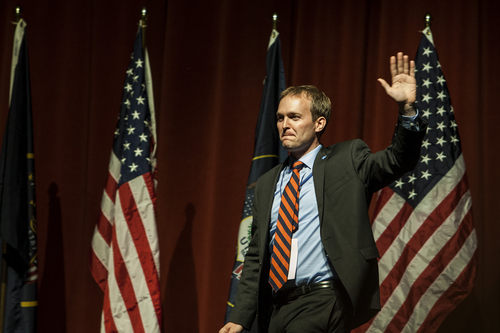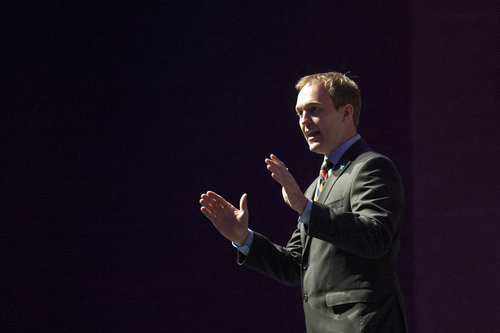This is an archived article that was published on sltrib.com in 2013, and information in the article may be outdated. It is provided only for personal research purposes and may not be reprinted.
Running the Utah Democratic Party is either a job no one wants or Chairman Jim Dabakis is doing such a terrific job nobody thinks he or she can do it better.
Dabakis and the other three party leaders are unchallenged going into the organization's organizing convention Saturday.
But while there's no debate over leaders, there is a major one planned on the party's method of picking candidates for elective office. Some delegates say voters — not party insiders — should decide who will face Republican rivals in general elections. Others say the current system works well and has a proven track record.
The two factions will have their say at the Democrats' organizing convention in Ogden, where delegates will vote either to keep the convention/caucus system that has been around for about 117 years or toss it and create a new one.
Whatever the outcome, the party will spend the next year or more looking at the way candidates are selected, delegates said, with an eye on possible changes in 2016.
"Whether we think the process is good or bad, I think we all kind of believe having more people participate is better," said Weston Clark, a Salt Lake City delegate and former Salt Lake County Democratic chairman who added that he'd like to see a hybrid process with a higher delegation threshold to get more candidates on primary ballots. Currently, a candidate who captures 60 percent of the convention delegate vote wins the nomination without a runoff.
—
Voter apathy • Utah's voter turnout has declined sharply for decades. Even with Utah adopted son Mitt Romney on the ballot last year, turnout in the state clocked in at an anemic 57 percent of eligible voters. While both major parties are looking for explanations, Democrats think the candidate-selection process may be a reason for the drop.
But some say voters' reluctance to participate is a reason to keep the convention/caucus system in some form, as voters entrust delegates to pay attention to candidates and their causes early in the election season.
Michael Ginsberg and his wife, Sheryl, are also delegates from Salt Lake City. The two said though they're open to anything, they'll likely support keeping the current system in place with some tweaks.
"It's expensive enough when you run in the federal election," Michael said. "But the cost of running in the primary, it's another huge added cost."
The caucus system allows candidates a fighting chance without having to raise large sums of cash to buy attention, supporters say. Others argue that without a primary, there's less urgency for potential donors to help would-be candidates early on, limiting fundraising power.
—
Delegating power • One argument against the caucus/convention system is that the party activists who become delegates fall outside the political mainstream.
Take, for example, longtime Democratic Rep. Jim Matheson.
Matheson voted against an Affordable Care Act that was widely popular among Utah Democrats and, in the 2010 party convention, fell short of the 60 percent of the delegate vote needed to avoid a primary
"In the primary, he won by a landslide," said Emily Hollingshead, a delegate from Cedar City — proof, as she sees it, that delegates don't necessarily represent Utah Democrats at large.
"I think people on both sides of the political aisle, I think the party die-hards are making the selections," Hollingshead said.
—
A Republican problem? • Many Democrats say they are open to exploring the best method of selecting candidates, while the issue at hand is more damaging within the Republican Party.
"Try as they will to say, 'Oh, the Democrats are captive to the far left,' " said Dabakis, also a state senator, "the Republicans are truly, indisputably captive to the far right."
Republicans, though, rejected proposed changes to their nominating system at the state GOP convention last month.
"What's really funny about Democrats," Hollingshead said, "… we're gonna whine, whine, whine about the right wing and how they only pick the ideologues. And yet when it happens within our own party, 'we don't have a problem.' "
A push from outside the party structures is coming from a group called Count My Vote, organized by lieutenants of former Utah Gov. Mike Leavitt. The group is expected to launch a campaign to put an initiative on the 2014 ballot to allow a candidate to make it to a primary through a convention or by an alternate route, collecting petition signatures.
Twitter: @taylorwanderson —
Democratic Party leaders in Utah
Jim Dabakis • Chairman
Josie Valdez • Vice chairwoman
Breanne Miller • Secretary
Brian King • Treasurer
All are unchallenged in their bids for re-election.


